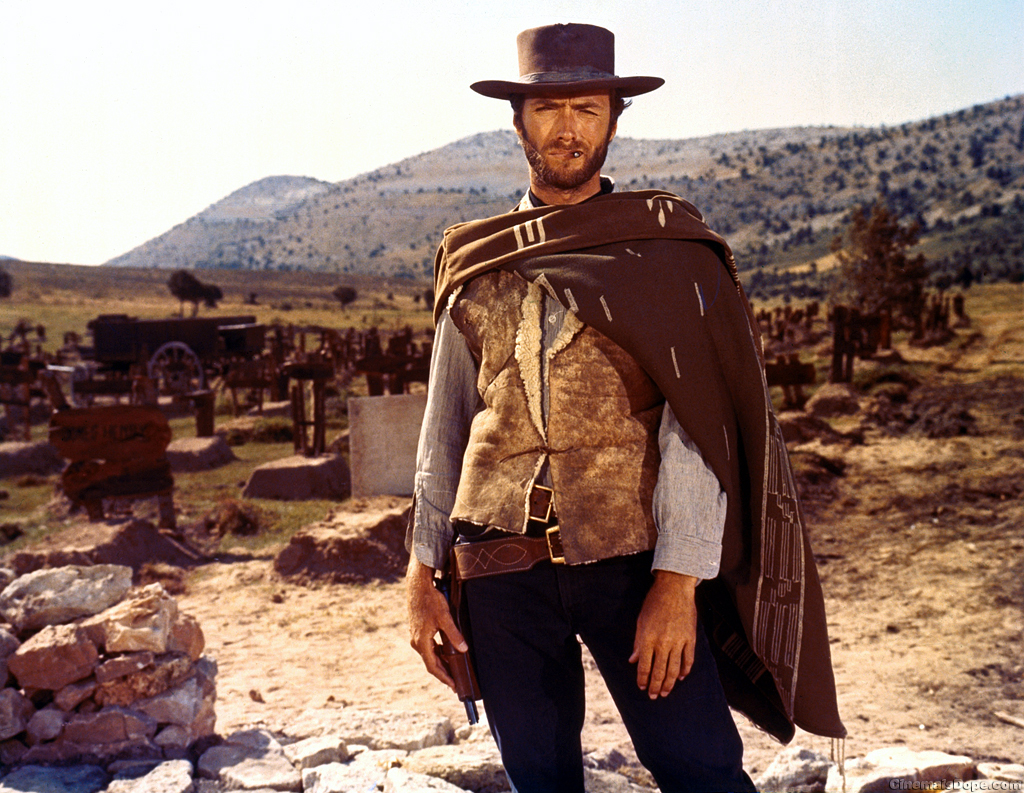Writing The Western Update XV: Revisions!
It started as a side project I was doing in my spare time, and then I just couldn't stop- I went back and condensed The Western down to 120 pages and got it into good enough shape that other people can actually read it now. The temptation is there once you've typed "The End" to take the seventh day off and call everything "very good." But revision is an important part of the writing process, and one that I actually enjoy. For one thing, it lets me say, "Oh God, I wrote that?" and then replace it with something else that doesn't make me cringe.[ref] ...and no one will ever know.[/ref]
The first thing I do when I'm reworking something is put some distance between it and me. Don't look at it, don't think about it. Twenty-four hours at a minimum, but longer is better. Then I can go back with more objective eyes and ask myself, "Is that line really as clever as I thought it was?"
The first draft of The Western came in at 139 pages, so one of my big tasks was cutting pages. This post from John August had a lot of useful ideas- like getting rid of widows, for instance.
 Having one or two words on lines by themselves will add up to a lot by the end of a script. I was able to come down almost ten pages just by rewording those sentences. When it comes to stuff like this, every line counts. Combining two short paragraphs into one longer one also helped a lot. Again, every line counts.
Having one or two words on lines by themselves will add up to a lot by the end of a script. I was able to come down almost ten pages just by rewording those sentences. When it comes to stuff like this, every line counts. Combining two short paragraphs into one longer one also helped a lot. Again, every line counts.
Cutting lines of dialogue made a big difference. This was key for one character who is supposed to be especially terse, but whom I had given several long-winded speeches.
I had nineteen pages to cut, and John says at that length, you need to entire sequences and simplify the plot.[ref] He notes that in a way, this is easier than going back and nitpicking over every line to cut a page or two- it is. The devil is in the details. [/ref] In this case, though, I didn't need to do that. After reworking the widows, simplifying some of the action scenes took out a lot as well. I spent the better part of a page during the horse chase setting up a stunt that wasn't that cool and didn't advance the plot at all- so, pffft! it goes.
The final climactic shootout got a lot of revising. Not only making it shorter and clearer, but I didn't want Our Hero simply fending off faceless mooks the whole time, either. I reworked the choreography to have him hunting down the Big Bad amid the chaos.
Initially, I budgeted 9-12 pages for Act V (remember, we're using five acts, not the traditional three). But knowing how much I love a big climactic set piece, I think in future projects I need to budget in more time than that. A lot of the pages I wound up cutting went toward making room for Act V.
A couple of things I thought I would need to change grew on me after reading them. This scene, originally five pages, I left with only a few minor changes. Also, one of our main characters trying to make nice with the good guys and the villains I thought seemed phony when I was writing it- how can they not see through this guy? But after reading through everything, I think it plays through very well. [ref] That's always a tough line to walk- if A is trying to fool B, the audience needs to understand what A is doing, but also believe that B is being duped.[/ref]
Only one scene got a complete makeover. I never liked how I had it written. Its main purpose was expositional, so it felt very slow and stilted. From a character perspective, everything made sense, but it felt... weird. Also, several of the characters it introduced turned out to be more important, so I wanted to highlight them more. I changed the perspective from which it was written to a different character and that helped a lot.
All in all, I am very happy with how it turned out. Now it's on to the next project, a political thriller with some science fiction elements. And its own set of problems. Let's get cracking...
